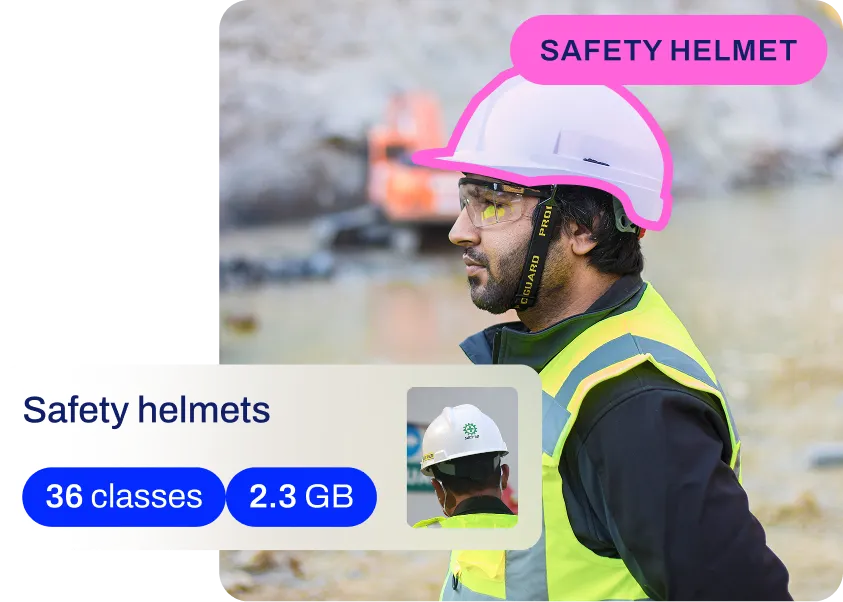Empfehlungssystem
Erfahren Sie, wie Empfehlungssysteme KI nutzen, um Benutzererfahrungen zu personalisieren. Entdecken Sie kollaborative Filterung und visuelle Ähnlichkeit mit Ultralytics .
Ein Empfehlungssystem ist ein Algorithmus zur Informationsfilterung, der entwickelt wurde, um die Präferenzen eines Benutzers für bestimmte
Artikel vorherzusagen. Diese intelligenten Systeme bilden die Grundlage moderner
Künstlicher Intelligenz (KI)
Anwendungen und helfen Benutzern, sich in der überwältigenden Menge an online verfügbaren Inhalten zurechtzufinden, indem sie personalisierte
Vorschläge zusammenstellen. Durch die Analyse von Mustern in Big Data– wie
Kaufhistorie, Sehgewohnheiten und Nutzerbewertungen – verbessern Empfehlungsmaschinen die Nutzerinteraktion und optimieren
Entscheidungsprozesse. Sie werden vor allem in Umgebungen eingesetzt, in denen die Vielfalt der Auswahlmöglichkeiten die Fähigkeit eines Nutzers übersteigt,
sie alle manuell zu bewerten.
Kernmechanismen der Empfehlung
Empfehlungsmaschinen verwenden typischerweise spezifische
Strategien des maschinellen Lernens (ML) zur Erzeugung
relevante Vorschläge zu generieren. Zu den drei wichtigsten Ansätzen gehören:
-
Kollaboratives Filtern:
Diese Methode beruht auf der Annahme, dass Nutzer, die in der Vergangenheit zugestimmt haben, auch in Zukunft zustimmen werden. Sie identifiziert
Ähnlichkeiten zwischen Benutzern (benutzerbasiert) oder Objekten (objektbasiert) anhand von Interaktionsdaten. Zum Beispiel, wenn Benutzer A und
Benutzer B "Film X" mochten, nimmt das System an, dass Benutzer A auch "Film Y" mögen könnte, wenn Benutzer B
gefallen hat.
-
Inhaltsbasiertes Filtern: Dieser
Ansatz empfiehlt Artikel, die denen ähnlich sind, die ein Benutzer zuvor gemocht hat, basierend auf den Artikelattributen. Er erfordert die Analyse
die Merkmale der Artikel selbst, oft unter Verwendung von
Verarbeitung natürlicher Sprache (NLP)
für Textbeschreibungen oder
Computer Vision (CV) für die Analyse von Produkt
Bilder.
-
Hybride Modelle: Durch die Kombination von kollaborativer und inhaltsbasierter Filterung,
zielen hybride Empfehlungssysteme darauf ab
die Einschränkungen einzelner Methoden zu überwinden, wie z. B. die Unfähigkeit, neue Artikel zu empfehlen, die noch keine
Interaktionsgeschichte haben.
Anwendungsfälle in der Praxis
Der praktische Nutzen von Empfehlungssystemen erstreckt sich über verschiedene Branchen und fördert sowohl
Kundenerlebnis
als auch den Geschäftsumsatz.
-
E-Commerce und Einzelhandel: Plattformen nutzen ausgefeilte Algorithmen, um Käufern Produkte vorzuschlagen.
Diese Systeme unterstützen KI im Einzelhandel, indem sie dynamisch
Listen mit dem Titel „Kunden, die dieses Produkt gekauft haben, kauften auch ...” anzeigen, was die Cross-Selling-Möglichkeiten erheblich erhöht
.
-
Medienstreaming: Dienste sind stark von Personalisierung abhängig.
Die Empfehlungsforschungsteams von Netflix
entwickeln Algorithmen, die das Fernsehverhalten analysieren, um die Homepage eines Nutzers mit relevanten Filmen und Serien zu füllen.
In ähnlicher Weise erstellen Musikplattformen Playlists, indem sie akustische Muster und das Hörverhalten der Nutzer analysieren.
Visuelle Empfehlungen mit Einbettungen
Eine Schlüsseltechnik in modernen Empfehlungssystemen, insbesondere für visuelle Inhalte, ist die Verwendung von
Einbettungen. Eine Einbettung ist eine numerische Darstellung
eines Objekts (z. B. eines Bildes) in einem hochdimensionalen Raum. Elemente, die visuell ähnlich sind, haben Einbettungen, die
nahe beieinander liegen.
Der folgende Python zeigt, wie man Bild-Embeddings mithilfe eines vortrainierten
Ultralytics - Klassifizierungsmodells extrahiert und ihre
Ähnlichkeit mithilfe von
PyTorchberechnet werden.
import torch.nn.functional as F
from ultralytics import YOLO
# Load a YOLO26 classification model
model = YOLO("yolo26n-cls.pt")
# Generate embeddings for two images (returns a list of Results objects)
results = model.predict(["bus.jpg", "dog.jpg"], embed=[1000])
# Calculate cosine similarity between the two embeddings
# Higher score indicates greater visual similarity
similarity = F.cosine_similarity(results[0].probs.data, results[1].probs.data, dim=0)
print(f"Visual Similarity Score: {similarity.item():.4f}")
Empfehlungssysteme vs. verwandte Konzepte
Es ist wichtig, Empfehlungssysteme von den zugrunde liegenden Technologien zu unterscheiden, die sie häufig verwenden:
-
Vektorsuche: Dies ist eine Suchmethode
Methode zum Auffinden von Elementen in einer
Vektordatenbank zu finden, die mathematisch am nächsten
zu einer Abfrage sind. Während ein Empfehlungssystem die Vektorsuche nutzt, um ähnliche Produkte zu finden, umfasst das Empfehlungssystem
das Empfehlungssystem selbst die umfassendere Logik der Benutzerprofilerstellung und des Rankings. Sie können dies in unserem
Leitfaden zur Ähnlichkeitssuche.
-
Semantische Suche: Im Gegensatz zu grundlegenden
Empfehlungen, die sich auf Verhaltensüberschneidungen stützen können, konzentriert sich die semantische Suche auf das Verständnis der
Bedeutung hinter einer Anfrage. Eine Empfehlungsmaschine könnte die semantische Suche nutzen, um die Absicht eines Nutzers zu interpretieren, wenn
sie bestimmte Kategorien durchsuchen.
Herausforderungen und Überlegungen
Der Einsatz wirksamer Empfehlungssysteme ist mit erheblichen Hürden verbunden:
-
Das Cold-Start-Problem: Neuen Benutzern oder Elementen fehlt der für die kollaborative Filterung erforderliche Interaktionsverlauf.
Filterung erforderlich ist. Techniken wie "few-shot learning" oder
Nutzung von Metadaten sind gängige
Lösungen für das Problem des Kaltstarts.
-
Skalierbarkeit: Die Systeme müssen
Millionen von Interaktionen in Echtzeit verarbeiten. Dies erfordert effiziente
Modellbereitstellungsstrategien und optimierte
Hardware.
-
Ethische Implikationen: Es besteht ein wachsender Bedarf, die
um zu verhindern, dass Systeme Stereotypen verstärken.
Stereotypen verstärken. Die Einhaltung der KI-Ethik und
und die Gewährleistung des Datenschutzes sind entscheidend für
Vertrauen der Nutzer.
Um eigene Modelle für Empfehlungsaufgaben zu erstellen und zu trainieren, bietet die
Ultralytics eine umfassende Umgebung für die Verwaltung von Datensätzen
und das Modelltraining.










.webp)